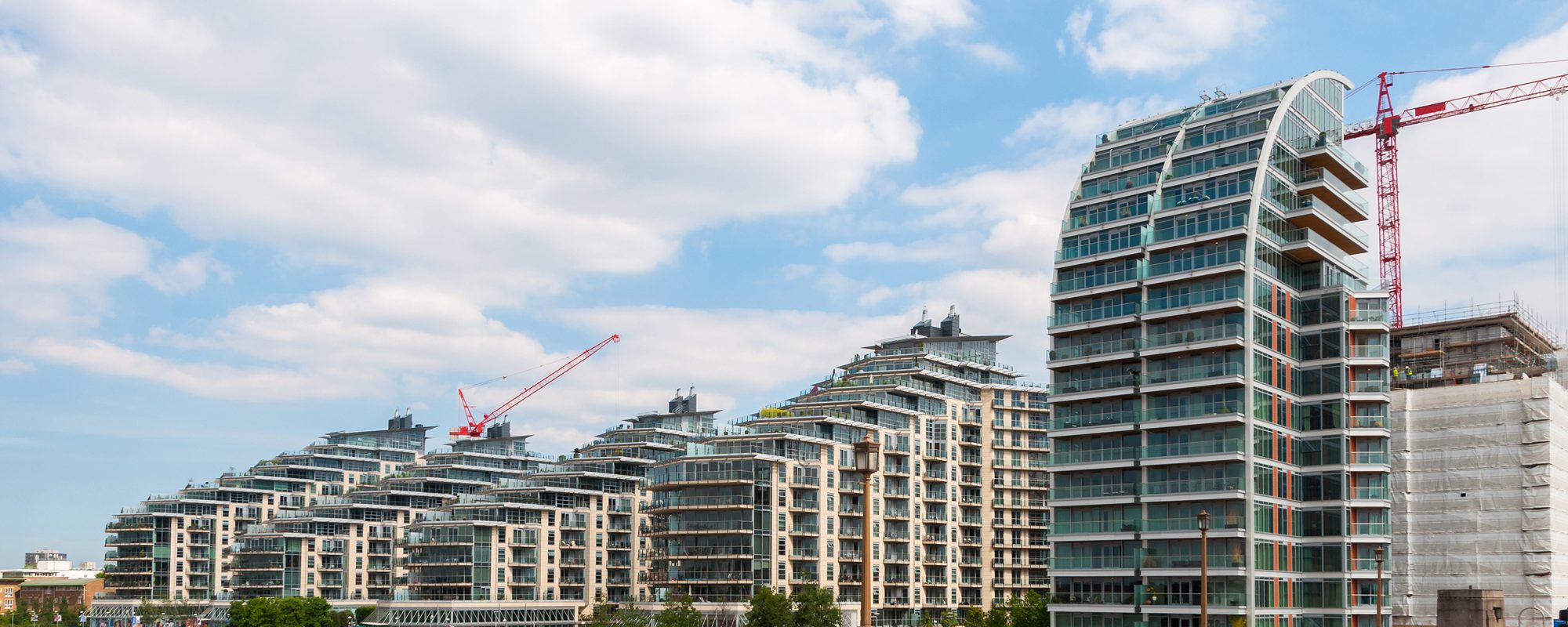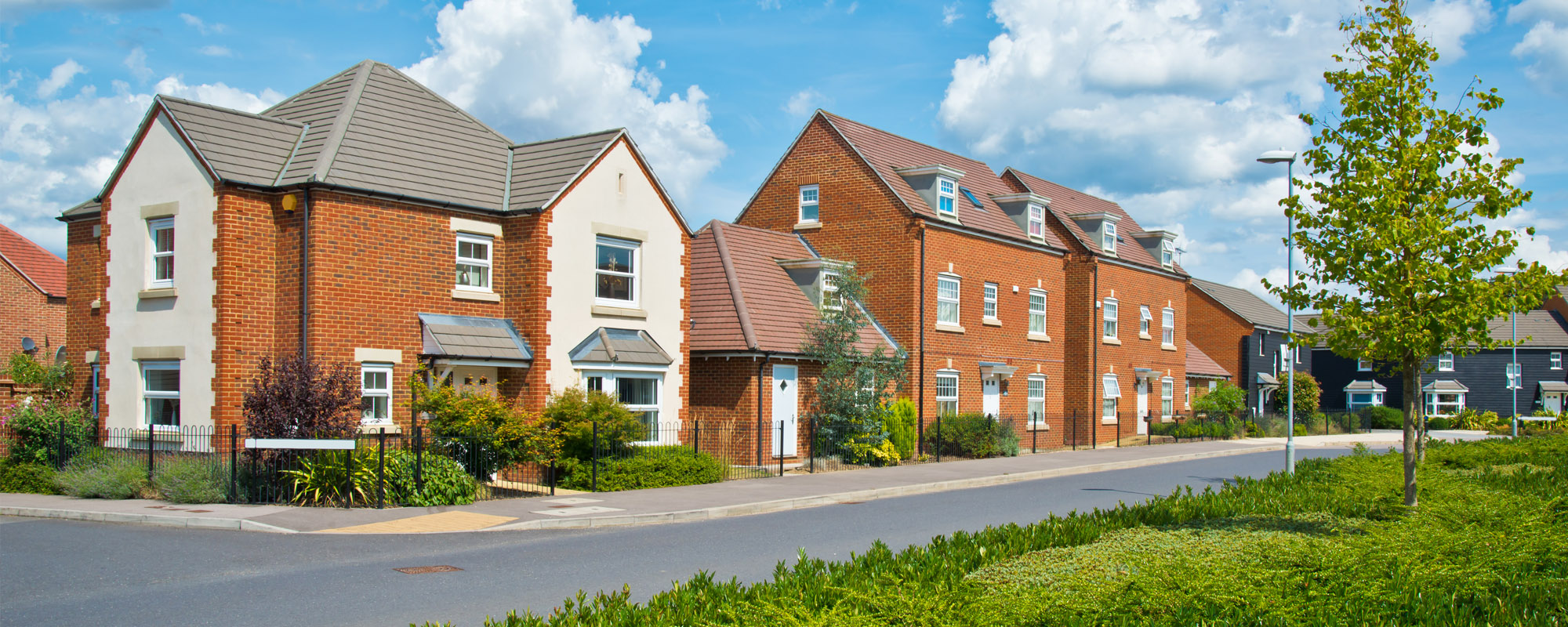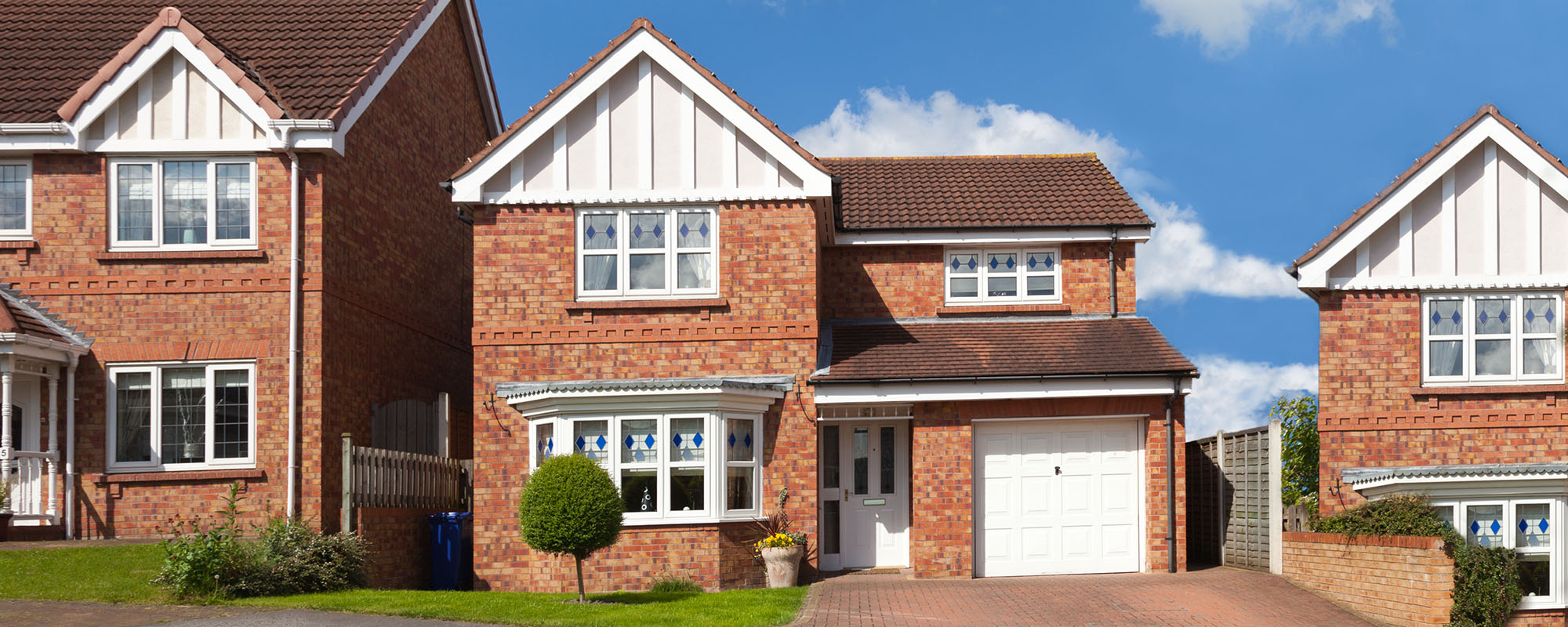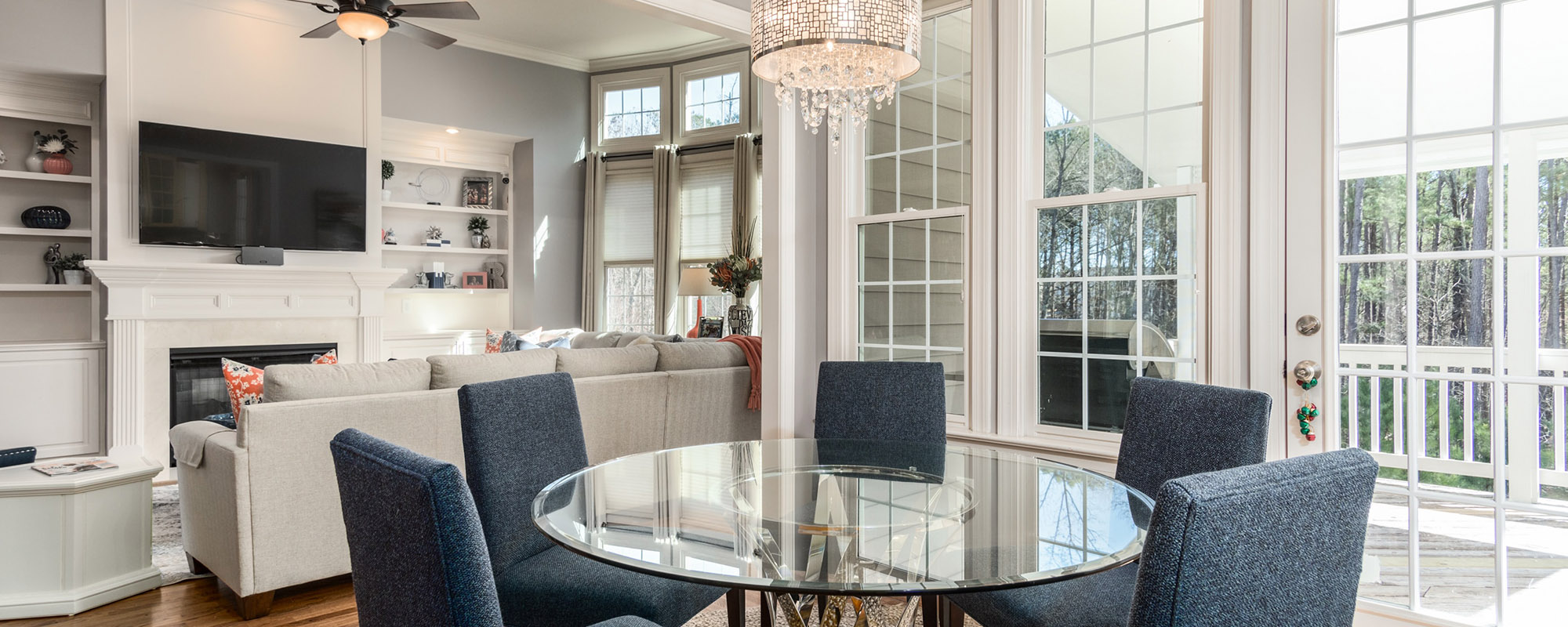FREE New Build Mortgage Advice
“We know that time is precious for you, we can work around your availability while searching for the most competitive mortgage products and overseeing your mortgage application from start to finish”.
Jonathan Smith – (CeMAP, BA Hons, Aff SWW, CeRER)
What is a new build mortgage?
This type of mortgage is specifically designed for a new-build property. Lenders vary on their definitions of new builds but, generally, they are newly built properties that have never been lived in. Some lenders consider new builds that are ‘off-plan’. This means a property that you’ve agreed to buy while the construction is still in process or hasn’t actually begun yet. Some lenders offer new build mortgages for properties that have been substantially renovated.
Getting a mortgage on a new build can be more complex than for an older property. This is because of the timescales involved, which we’ll explain later on, and the high price tag. New builds often have higher purchase prices than similar, older properties, which is called the ‘new build premium’. Once you’ve moved in, however, your new-build home will no longer have the attraction of being brand new. As a result, it may decrease in value within the few first years of you owning it. These issues can make it harder for you to arrange a mortgage when trying to buy a new-build home. You’ll need to pay a larger deposit, meet stricter lending criteria, pay higher interest rates and adhere to short timescales.
Your deposit for a new build mortgage
As new builds usually drop in value once someone has moved in, this increases the risk for lenders. To counteract this, you’ll be expected to pay a bigger deposit than for an older property. Lenders tend to offer a loan-to-value (LTV) ratio of 85% for new-build houses, meaning you would need to pay a 15% deposit. For new-build flats, they usually offer lower LTVs of 75% so that you’d need to pay a 25% deposit. If you’re struggling to save your new build mortgage deposit, schemes are available to help you with your purchase. These include Deposit Unlock, shared ownership and the First Homes Scheme. We’ll explain these in more detail later on.
New build mortgage criteria
The lending criteria are more restricted for new build mortgages than for standard residential mortgages. As mentioned earlier, lenders differ on their definitions of new builds. This narrows down the number of lenders to approach depending on whether you want to buy a property that’s just been built, an off-plan property or one that’s been substantially renovated. Some lenders also restrict the types of new builds they’ll provide mortgages for and others will only lend on a set number of new builds in each development. Your lender will more than likely carry out a valuation of the new build you’re buying to ensure that the developer’s price is fair. Although the new build mortgage deposit requirement is higher, your affordability for a mortgage will be calculated in the same way as for a standard residential mortgage.





Timescales for new build mortgages
There are two timing issues you may encounter when buying a new build. One is a 28-day deadline to exchange contracts and the other is the validity period of your mortgage offer.
The strict deadline set by developers
Developers usually have a strict deadline for you to exchange contracts on your new home. This deadline is 28 days from the point you’ve paid a reservation fee. Such a short time frame can make it difficult for lenders to arrange a mortgage. Therefore, it’s recommended to start preparing before you view any properties. Apply for a mortgage in principle so that you know how much a lender is prepared to offer you. This will speed up the mortgage application process once you’ve found a property you want to buy. Our mortgage brokers also know which lenders can process applications for new build mortgages quickly. This ensures that the quick 28-day deadline to be approved for your mortgage is met.
The validity period of your new build mortgage offer
Your mortgage offer will be valid for a specified time, such as 6 months. If you decide to buy an off-plan new build, you need to bear in mind how long it will take for the property to be finished. If it’s not ready in time, your mortgage offer will expire. If you think this is going to be a possibility, ask your lender if they will consider a new build mortgage offer extension. Not all mortgage lenders for new builds will do this and some may insist that you start the mortgage application process again. As unexpected issues invariably occur when building properties, some lenders cater to this by offering longer validity dates for new build mortgage offers, such as 9 months. Our mortgage brokers know which lenders provide mortgage offers with longer validity periods if you prefer to buy an off-plan new build.
Developer incentives for new builds
To entice you to buy their property, a developer may offer you an incentive. This may be to cover your legal fees, to pay your stamp duty, to give you cashback or to pay your moving costs, for example. They may offer to upgrade items within the property, such as fitting premium kitchen worktops or premium carpets. Whilst an incentive can help with your finances, just be aware that it may impact the amount you can borrow for your mortgage. New build mortgage lenders generally accept incentives that are up to 5% of the property’s value. However, if the incentive you’re offered is above 5% of your new-build’s value, the lender is likely to deduct that extra amount from the purchase price. This reduces the amount you can borrow and means you have to find the extra funds needed to cover the shortfall.
For example, you’ve chosen a new-build home for £200,000 and the developer has offered you an incentive that totals £10,000. As 5% of the purchase price, the lender should be happy with that and it won’t affect the amount they offer you. If your incentive has a higher value of £15,000, however, this is 7.5% of the purchase price. In this case, the lender may deduct the extra £5,000 from the purchase price when deciding how much to lend you. As the LTV is affected, so too are the new build mortgage rates you’ll be offered. Therefore, what might seem like a good incentive can actually cost you more in the long run if it’s valued at over 5% of your new build’s value. Speak with one of our mortgage advisers about the impact an incentive may have on your mortgage before you agree to it with the developer.
Discuss your new build mortgage needs with an expert
Whilst mortgages for new builds are more complex than standard ones, our mortgage brokers are adept at arranging them successfully. Located in Kent, London and Edinburgh, they understand the issues you may be faced with and know how to work around them. At Trinity Finance, we work closely with new build mortgage lenders who provide flexibility when it comes to their application criteria and meeting the timescale challenges. We also have access to exclusive offers so that you can benefit from the competitive new build mortgage deals available.
Just give us a call on 01322 907 000 to discuss your financial needs with one of our experts. As well as arranging your mortgage, we provide other services that you can take advantage of. These include arranging your new build home insurance and mortgage protection insurance to cover you against unexpected events. If it’s out of office hours, send an email to us at info@trinityfinance.co.uk or via our contact form. One of our mortgage and protection brokers will reply to you as quickly as possible with more information.
Schemes to help you buy a new build
Not everyone can meet the high deposit requirements set by new build mortgage lenders. If you’re struggling to save an adequate deposit, there are schemes available to help you. These include Deposit Unlock, the First Homes Scheme and shared ownership.
Deposit Unlock
This scheme aims to make the ownership of new-build homes more affordable for both first-time buyers and existing homeowners who wish to move into a new home. The Deposit Unlock scheme is a collaboration between house builders and lenders. Developers pay insurance to the participating lenders each time a property purchase completes. This reduces a lender’s risk and, in turn, they offer 95% mortgages with competitive rates. This means you only need to pay a 5% deposit when buying a new-build home via one of the scheme’s participating home builders.
First Homes Scheme
This scheme is available in England to first-time buyers. It enables you to buy a newly built property with a discount of up to 30% on the property price. Local councils can provide higher discounts provided that they can demonstrate to the government that there’s a need for this. Property prices are capped at £250,000 after the discount or £420,000 in London. You need to pay a minimum deposit of 5% of the discounted property price, making it much easier to save. You also need to secure a mortgage for at least 50% of the price when buying through the First Homes Scheme.
Shared ownership
With shared ownership, you buy a percentage of a property, which is usually between 25% and 75% of its value. You then pay rent on the remaining share to the landlord, which tends to be a housing association. To buy a shared ownership home, you only need to pay a small deposit, such as between 5% and 10% of the share you’ve opted for. You can increase the share that you own of your home in the future. Known as staircasing, this tends to be done in increments of 10% or more.

Considerations when buying a new build
We’ve already mentioned that new builds tend to have a higher price compared with similar, older properties and that you need to be aware of the incentive value that you’re being offered by the developer. We’ve also explained how the timescales that apply to new builds can affect your mortgage. As well as these issues, a delay in the completion date when buying off-plan also affects when you can move into your new home. Another consideration, though, is what happens if the property value changes between the point you exchange contracts and the construction work is finished.
A change in the property value
When you exchange contracts, you are legally obliged to buy the property at the original agreed price. It’s important to understand, however, that the valuation of your property may change once it has been finished compared with the original new build mortgage valuation that was carried out. Regardless of whether the new valuation has increased or decreased, you’re still liable to pay the original price. This can affect your mortgage in that your lender may withdraw your mortgage offer and only agree to lend you a lower amount. This will leave you without enough funds to buy the property while still being legally committed to buying it or paying compensation to the developer. Not only will you lose your deposit and reservation fee but legal action can be taken against you by the developer to recover the difference between the original agreed purchase price and the lower price that’s achieved when the property is resold.
The benefits of buying a new build
New build mortgages may be complex but there are many benefits to buying a newly built property. These numerous advantages make the obstacles worth overcoming and our mortgage brokers will ensure that your mortgage application is handled as efficiently and smoothly as possible.
- You won’t be gazumped. Unlike buying from a seller of a pre-owned home who may accept someone else’s offer after already accepting yours, this won’t happen with a new build. The developer sets the price and you pay a fee to reserve the property.
- No property chain. As the property is newly built, you don’t need to worry about being stuck in an onward property chain and having to rely on other parties before you can complete on your purchase.
- Developer incentives. The developer may offer you incentives to help sweeten the deal.
- Schemes to help with affordability. If you’re struggling to save a big enough deposit, there are schemes to help you afford your new-build property purchase.
- Brand new. You have the excitement of knowing that you’ll be the first person to live in the property.
- A blank canvas. Your new build is likely to be decorated in a neutral tone so that you can put your own stamp on it when you move in.
- Low maintenance. As the property has just been built, there is very little maintenance, if any at all, to worry about. There may be some small snagging issues, such as the doors sticking, but these will be dealt with by the developer.
- Energy efficient. Your new build will be much more energy efficient than an older property, helping you to save on energy bills. All new builds have to comply with building regulations, which have specific ventilation and heating requirements. You’ll benefit from having effective insulation, double glazing, an efficient boiler, LED lighting, a water-saving system and high-efficiency appliances.
- Modern features. New builds are designed with modern living in mind. This means your home is likely to have an open-plan layout with each space serving multiple functions. The main bedroom will probably have an en suite bathroom, there may be a study and enough parking should be included for one or two cars.
- A choice of fixtures and fittings. Depending on the stage that the developer has reached with your property, you may be able to choose your preferred fixtures and fittings.
- An input into the design. If buying an off-plan new build, the developer may allow you to have some input into the layout and design of the property.
- Safety features. New builds have to comply with safety regulations. This means your property will be fitted with smoke alarms and fire-resistant materials will be used throughout. Your new build may even include a video entry device and CCTV.
- Smart technology. You may benefit from the inclusion of smart technology in your home, such as smart lighting and thermostats.
- A warranty. Every new build comes with a 10-year warranty. This is usually issued by the National House Building Council (NHBC) and is called a Buildmark warranty. This covers you for any structural defects found in the property. Most developers provide their own warranty too, giving you additional cover for the first couple of years. Check exactly what your new build is covered for before proceeding with the purchase.
The drawbacks of buying a new build
As with any property purchase, there are drawbacks to consider when buying a new build, some of which we’ve already mentioned.
- No character. New builds usually lack the charm that older properties have.
- Less space. Newly built properties tend to be smaller in size than older properties.
- More expensive. New builds are generally higher in price than similar, older properties. This poses more of a risk to lenders so you will be required to pay a larger deposit and a higher rate for your new build mortgage.
- A fast deadline to exchange contracts. Developers often set a 28-day deadline to exchange contracts, which can make it harder for lenders to arrange mortgages in time.
- A delay in completion. When buying off-plan, be aware that there may be delays in the building phase. Not only does that affect when you’d planned to move in but can result in your mortgage offer expiring.
- A change in the property price. The valuation that’s carried out once the new build is finished may be different from the original valuation. This can impact your mortgage and you may find yourself facing legal action if you cannot continue with the purchase.
- Your property may lose its value quickly. Once you’ve moved in, your property is no longer brand new. This can result in a reduced property value within the first few years of owning it.
- Building work may continue on the site. Even though your property may be finished, others may still be in the construction phase. This means you will have to live on a site with ongoing building work, possibly for months.
Benefit from a smooth process when arranging your new build mortgage
Our mortgage brokers – located throughout Kent, London and Edinburgh – are ready to make your new-build purchase proceed as smoothly as possible. They can advise you on the schemes available to help you finance your purchase, such as the First Homes Scheme, shared ownership and Deposit Unlock. If you’re offered an incentive by the developer, they can determine whether or not it affects how much a lender is prepared to offer you. They also understand the timescale issues you may face and can work around them for a successful outcome.
At Trinity Finance, we have access to exclusive new build mortgage deals, ensuring that you benefit from competitive rates and terms to meet your needs. Aside from arranging your mortgage, our new build mortgage services include offering financial protection, such as new build home insurance and mortgage protection insurance. These policies will give you peace of mind should the unexpected happen. Simply call us on 01322 907 000 to speak with a new build mortgage broker for expert guidance on all aspects of your purchase. If you prefer, send an email to us at info@trinityfinance.co.uk or an enquiry via our contact form. A new build mortgage specialist will reply to you with more information as quickly as possible.
FAQs
Yes, although you’ll need to pay a larger deposit, such as 20% or 25% of the new build’s value. This is because there are additional risks for the lender. If the building phase is delayed, this delays when you can rent out your property to earn a rental income. As well as that, the value of your new build may drop as soon as a tenant moves in.
Lenders have their own criteria for the affordability of a new build mortgage when you’re self-employed. As long as you satisfy their requirements, there’s no reason why you shouldn’t be offered a loan.
Having bad credit can make it more difficult to secure a new build mortgage but it’s still possible. We work with specialist lenders who offer more flexibility with their criteria. They will look at the reasons for your bad credit issues, how long ago they occurred and how severe they are. You will more than likely have to pay a larger deposit and a higher interest rate to reduce their risk.
Yes, stamp duty is payable on new builds so you need to factor this into your budget. If you’re a first-time buyer, stamp duty isn’t payable up to £425,000 as long as you’re buying the new build to be your home and its price doesn’t exceed £625,000. You’ll need to pay 5% stamp duty on any balance between £425,001 and £625,000. If buying your new build via a shared ownership scheme, you can either pay the full amount of stamp duty based on the property’s market value or pay it in stages.
Your new build should be covered by a warranty. This will be valid for 10 years and provide protection against structural defects via the National House Building Council (NHBC). The developer may also provide you with a warranty, providing you with additional cover for the first 2 years. These warranties don’t cover your property in the event of unexpected events, however. For this type of protection, you need new build home insurance, which consists of buildings and contents insurance. You can take the buildings and contents insurance policies out separately or combine them for more cost-effective cover. Your lender will usually insist that you arrange buildings insurance before exchanging contracts.

